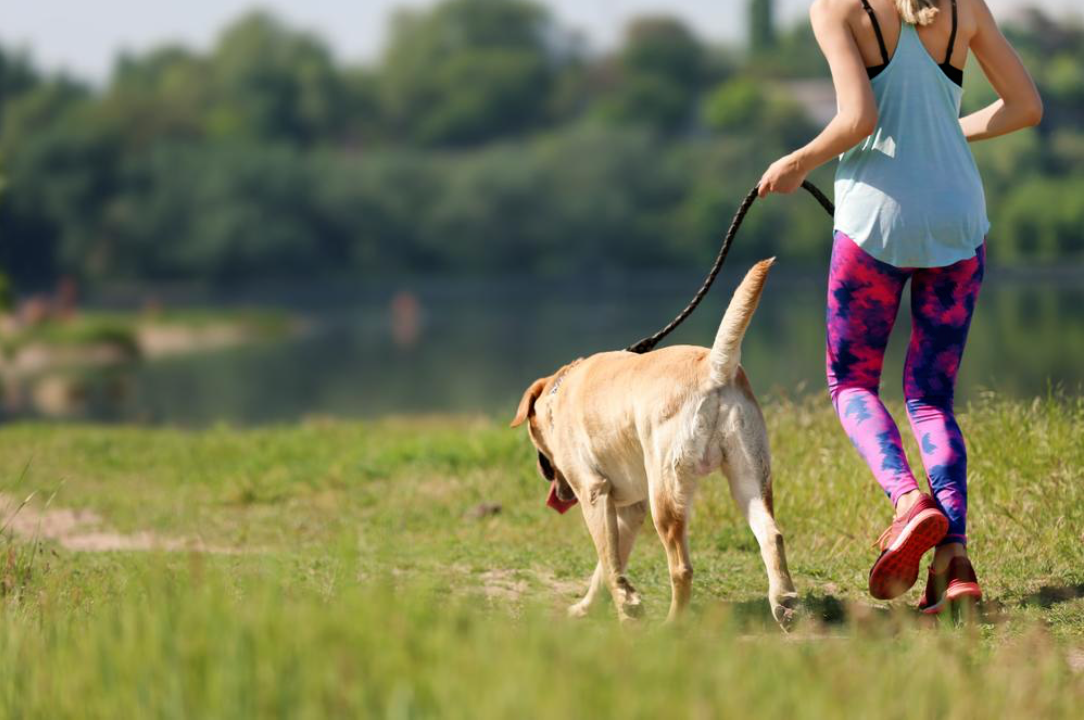Compared to humans, dogs have a shorter lifespan. Ask any owner and you will find that they all wish their furry friend would live a long and healthy life. Dogs are an irreplaceable part of our lives and we owe them the best.
Well readers, here are 5 simple tips that you can follow to give your pooch just that.
#1. Regular Exercise
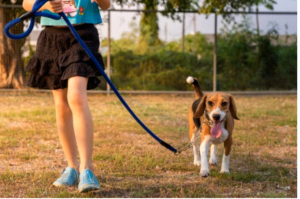 Exercise is one of the most important factors that will keep your dog healthy. Without regular exercise, your dog will become bored, frustrated and unhealthy. It’s also a great way to spend some quality time with your dog.
Exercise is one of the most important factors that will keep your dog healthy. Without regular exercise, your dog will become bored, frustrated and unhealthy. It’s also a great way to spend some quality time with your dog.
Exercise is an activity that not only affects the physical but the mental aspects of the dog. During exercise, the dog’s muscle mass is worked and it tones – making him lean. The metabolic process works properly, he takes in more oxygen improving blood circulation.
Exercise also releases chemicals and hormones that positively affect the dog’s brain and mind. A complete exercise regimen includes puzzles and other mental simulations besides walking, running and swimming.
Exercise also helps release stress and is an outlet for the dog’s energy. And we all know that dogs are one of the most active animals on the planet.
#2. Nutritious Food
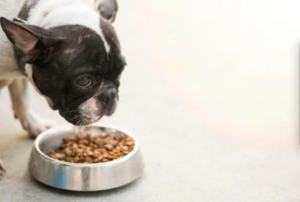 Proper exercise should always be complemented by nutritious food. Proper food will give your dog the essential proteins, vitamins, minerals which will keep your dog healthy, energetic and active. Without it, your dog will suffer from malnutrition and will be vulnerable to a plethora of diseases.
Proper exercise should always be complemented by nutritious food. Proper food will give your dog the essential proteins, vitamins, minerals which will keep your dog healthy, energetic and active. Without it, your dog will suffer from malnutrition and will be vulnerable to a plethora of diseases.
Many of us only focus on buying expensive and premium quality food. Premium foods are easy to handle, have a larger shelf-life and readily available. They are also loaded with antioxidants, pro and prebiotics, omegas and fatty acids that will satisfy your dog’s daily needs. Many of them are protein-rich and tailor-made for specific sizes, ages, and breeds of dog.
However, it’s important that a premium brand is not always nutrition-dense. You can also make homemade dog food which can be equally nutritious, tasty and provides a holistic diet.
While buying food, do remember to read the labels. Go for foods that have real meat or whole poultry as their primary ingredients. Corn and what based protein should always be avoided.
#3. Keep Your Dog Away From Stressful Situations
 While it’s at times unavoidable, we should try our best to keep our dog away from stressful situations. Anxiety and stress are bad for health and can drastically shorten life spans.
While it’s at times unavoidable, we should try our best to keep our dog away from stressful situations. Anxiety and stress are bad for health and can drastically shorten life spans.
The best way to know if your dog is stressed is through observation. Maybe he is acting a little distant or clingy or randomly barking at everything?
Here are a few common and noticeable full-body languages that show when a dog is stressed:
- Tense Muscles
- Itching and scratching
- Shaking and/or shivering
- Excessive drooling
- Abnormal Shedding
- Licking lips and nose
- Yawning
Other than the ones above, they can also be constipated, have decreased appetite, have increased sleep times and show unnecessary aggression.
It’s imperative that you create a safe zone for your dog. Remove the stressor and make him calm him down. Under no circumstance, you should comfort your dog. It will greatly affect his confidence and confirm his worst fears.
#4. Take Your Dog To A Veterinarian
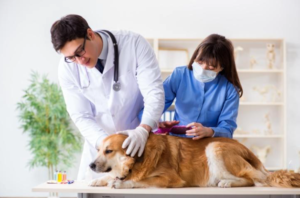 While we do our best to take care of our beloved furry friends, sometimes we do miss signs of sickness. Many dog owners misunderstand the meaning of regular checkup with the vet. A veterinarian is an expert at finding out the little things that we commonly miss.
While we do our best to take care of our beloved furry friends, sometimes we do miss signs of sickness. Many dog owners misunderstand the meaning of regular checkup with the vet. A veterinarian is an expert at finding out the little things that we commonly miss.
When you get a puppy, you should visit a vet to get the required vaccinations. A vet will also advise you on how to feed and take care of your dog properly. In every stage of your dog’s life, a vet plays an important role.
It’s quite common that a dog feels nervous while visiting a vet. You can ease this process by walking or playing with him. In the waiting room keep him calm, he may be excited to meet other animals. And lastly, ask your vet to help hold or stay with the dog while examinations. This will reassure your dog that you are never far from him.
Make a schedule to routinely visit your vet. Early diagnosis can greatly improve the chances of an illness to be successfully treated. It will save money, time and a lot of hassle.
#5. Maintain Your Dog’s Oral Health
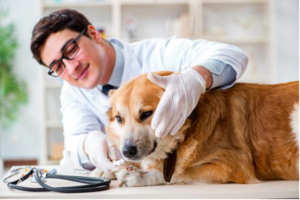 Oral problems, especially tooth decay, is very common in dogs. Tooth decay not only creates dental problems but it can adversely harm many organs in the entire body. The heart and the kidneys are at most risk of being infected from tooth decay.
Oral problems, especially tooth decay, is very common in dogs. Tooth decay not only creates dental problems but it can adversely harm many organs in the entire body. The heart and the kidneys are at most risk of being infected from tooth decay.
An estimated 80% dogs over 3 years are affected with some degree of periodontal disease. Every time a dog with dental problem chews, the bacteria which resides on the teeth go into the bloodstream and camps into the kidneys, liver, heart creating additional problems.
Besides tooth decay, fractured teeth and tooth root abscesses can be painful and can be a source of constant discomfort for your dog.
Here are a few things you can do to maintain the dental health of your dog.
- Make a practice of brushing his teeth from an early age
- Don’t wait for a month, try to brush every week and if possible, every few days.
- Buy a toothbrush and toothpaste that has the VOHC (Veterinary Oral Health Council) seal
- Use dental food. They are great!
- Schedule regular dental checkups with your vet.
So, here are the 5 things you can do to lengthen your dog’s lifestyle. The key to a long life lies in proper care and healthy lifestyle. Take care of your dog like you would take care of any member of your family. With all the love they give us, they deserve our unwavering love, care, and attention.
About the Author:
This is a guest post contribute by Danial Zaman. He is a senior content writer at FeedFond. Danial is proud parent of German Shepherd dog; most of the tips he shares comes from his personal experience with his dog. This article must be a good knowledge for all the dog owners, specially the newbie.

